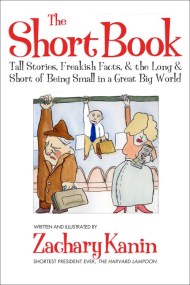Promotion
Use code TAURUS25 for 20% off sitewide + free shipping over $35
Figuring Out the Past
The 3,495 Vital Statistics that Explain World History
Contributors
By Daniel Hoyer
Formats and Prices
Price
$18.99Price
$23.99 CADFormat
Format:
Trade Paperback $18.99 $23.99 CADThis item is a preorder. Your payment method will be charged immediately, and the product is expected to ship on or around November 17, 2020. This date is subject to change due to shipping delays beyond our control.
Also available from:
Discover the world records that define our history and jump headfirst into the past using scientific data that reveals accurate and insightful answers to life’s biggest questions.
What was history’s biggest empire? Or the tallest building of the ancient world? What was the plumbing like in medieval Byzantium? The average wage in the Mughal Empire? Where did scientific writing first emerge? What was the bloodiest ever ritual human sacrifice?
What was history’s biggest empire? Or the tallest building of the ancient world? What was the plumbing like in medieval Byzantium? The average wage in the Mughal Empire? Where did scientific writing first emerge? What was the bloodiest ever ritual human sacrifice?
We are used to thinking about history in terms of stories. Yet we understand our own world through data: cast arrays of statistics that reveal the workings of our societies.
In Figuring Out the Past, radical historians Peter Turchin and Dan Hoyer dive into the numbers that reveal the true shape of the past, drawing on their own Seshat project, a staggeringly ambitious attempt to log every data point that can be gathered for every society that has ever existed. This book does more than tell the story of humanity: it shows you the big picture, by the numbers.
Genre:
- On Sale
- Nov 17, 2020
- Page Count
- 272 pages
- Publisher
- PublicAffairs
- ISBN-13
- 9781541762688
Newsletter Signup
By clicking ‘Sign Up,’ I acknowledge that I have read and agree to Hachette Book Group’s Privacy Policy and Terms of Use













